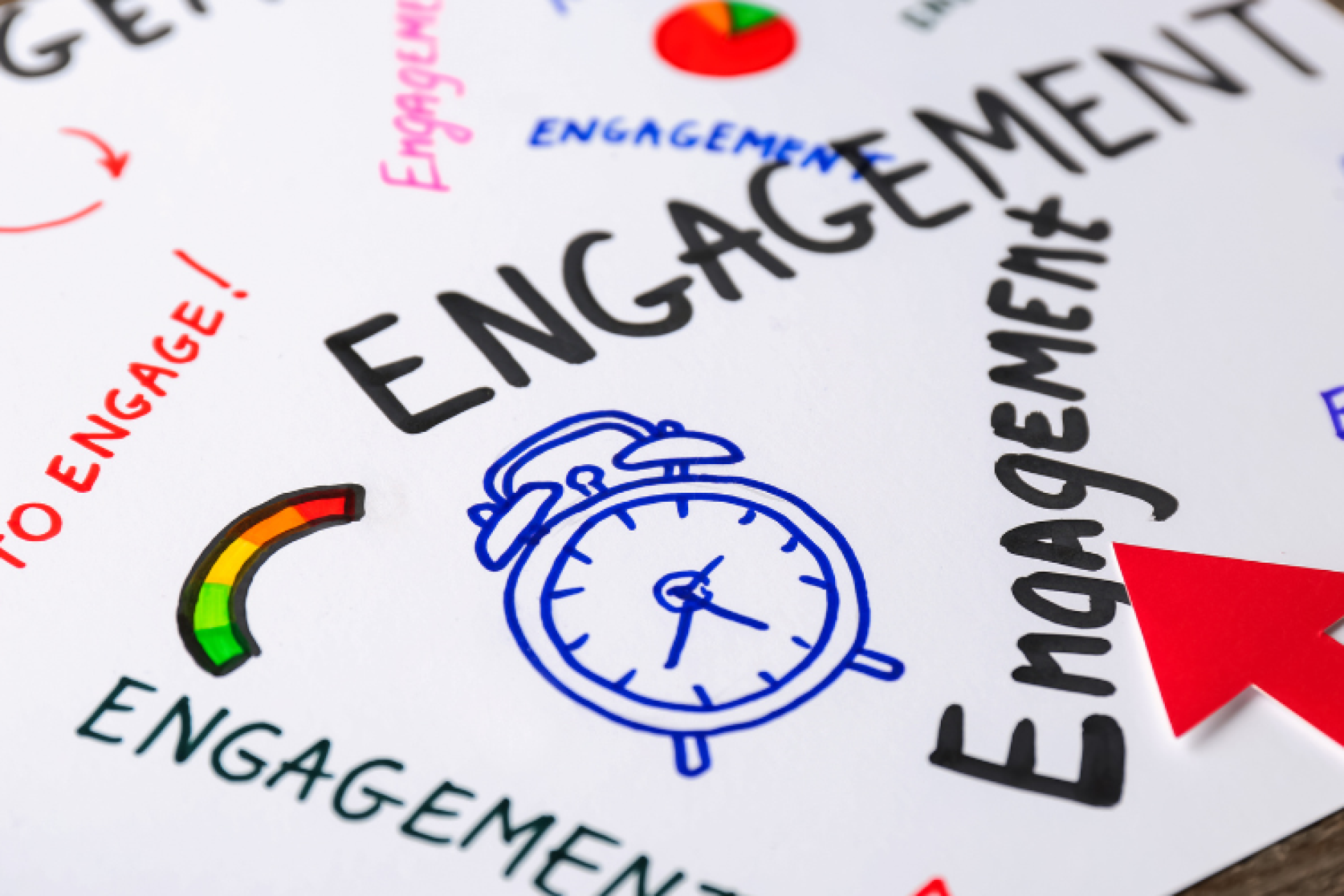Civic Engagement Questionnaire Responses: 2021 NYC Mayoral Primary Election
WCC asked every New York City mayoral candidate to weigh in on questions of importance to women and civic engagement, so voters have an understanding of where they stand on these issues before casting their vote in the primary.
Below are the responses WCC received from the candidates who replied to the questionnaire.
Art Chang
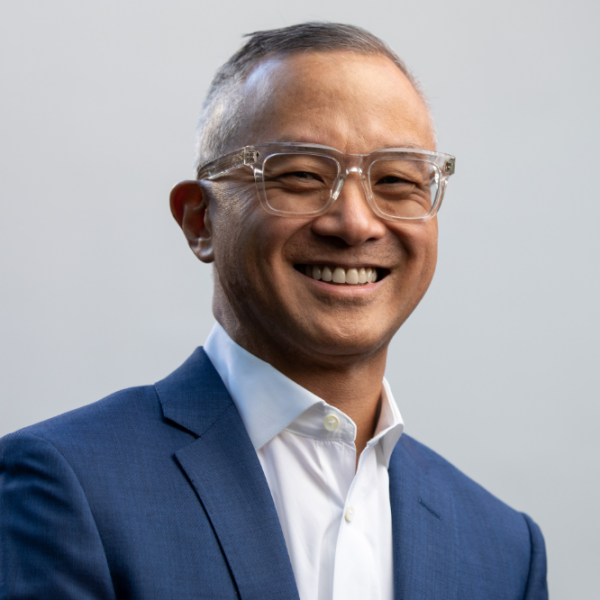
1. Women have told us that the most common reasons they are unable to engage in civic processes are logistical – time, childcare, work. What are your plans to reform our city’s civic engagement systems so they are accessible to women who face these obstacles—and, how do you plan to address the obstacles?
“You know those “I Voted” stickers you get when you vote? I co-created NYC Votes with the Campaign Finance Board to increase participation in our democracy. It was NYC Votes that first allowed you to find your voter information online, as well as information about all of the candidates. However, since my work on NYC Votes, the use of technology in our City Hall hasn’t kept up with the times. As Mayor, I’d reboot City Hall and bring its tech infrastructure into the 21st Century with an NYC Votes App to make getting your voter information even easier (along with many other ways we can use tech in our government: visit www.chang.nyc/technology for my full plan).
Additionally, as Mayor, my keystone initiative will be providing Universal Childcare to all. I’ll prioritize childcare “deserts” first, then gradually roll out more facilities across the city. Read my full plan at www.chang.nyc/universal-childcare. “
2. For many, civics education ends in the classroom. If elected, what plans do you have to ensure that New Yorkers are learning about civic engagement throughout their entire lives, including their rights as residents, how they can engage in different aspects of government, the legislative process, and changes in voting policies?
First, we need to teach more civics in schools. Then, we will focus on gov’t transparency. By being clear & rebuilding the government in a way that is transparent & equitable, we pave the way for New Yorkers to learn where the City budget is going.
I’ll revise the city charter to allow a fresh start to the powers of NYC’s leadership. An Equity Scorecard will measure the stresses experienced by the most vulnerable populations & the Mayor’s performance. I also believe that the City Council should serve as a confirmation body for key Mayoral cabinet appointments, starting with the DOE Chancellor and NYPD Chief.
The Mayor’s office should be accessible, both physically & digitally. I’ll better utilize technology and marketing to reach every New Yorker where they are with vital information. I’m also proposing we set up a mobile City Hall – myself and my key staff will spend one week each month in a pop-up office in a different neighborhood. Read more: www.chang.nyc/rebootcityhall
3. Given that 43% of community board members are women (and fewer are women of color), what will you do to make participating in community boards easier for underrepresented communities? Do you believe that community boards should have veto power over certain decisions? If so, which ones?
First, we need to utilize that technology and marketing plan I’ve mentioned to get the word out about Community Boards, a vital part of our City infrastructure that’s often not fully staffed. As a Mayor focused on transparency, efficiency, and bottoms-up approaches informed by front-line workers and communities, fully engaged community boards will be vital to achieving my administration’s goals. I plan to engage community boards and CBOs in every new plan I implement, which causes a positive cycle: when City Hall actually takes the advice of Community Boards to make their neighborhoods healthier, more people will actually have the ability and bandwidth to actively participate in their local government, leading to a stronger and more effective Community Board.
4. Protest is an important channel for communities to make their voices heard, especially those who have been historically excluded from civic systems. Following the recent Department of Investigation report that found that the NYPD has acted recklessly and endangered New Yorkers who were protesting, how will you protect New Yorkers First Amendment rights?
As Mayor, I will cut $1.3 billion from the NYPD and establish new checks and balances in order to allow New Yorkers better protection for their First Amendment Rights. I believe the Police Chief should have a separation of powers, in order to prevent one single person having sole power over disciplinary matters. These checks and balances include:
- a semi-autonomous civilian complaint intake and investigatory body, that would also handle agency audits
- an autonomous adjudicatory body or an enhancement of OATH
- this would focus on NYPD and Corrections, but be applicable to all other Mayoral agencies
- insubordination and other HR issues would remain under Mayoral control
Read my full plan at - www.chang.nyc/policing.
5. Women of transgender experience are disproportionately impacted by police violence and experience incredible barriers to accessing stable housing, culturally competent health care, and other services that make it harder to engage civically. What specific plans do you have to make New York City a more equitable place for the transgender community?
My LGBTQIA+ policy is rooted in healthy individuals, families & communities. I will:
- Respect the broad spectrum of identities across LGBTQIA+ communities while also acknowledging intersectionality w/ race, national origin, gender, class, etc.
- Communicate the importance of equality of rights/equity of resources for LGBTQIA+ residents, w/ a special emphasis on supporting parents and families, and on ensuring equal access to employment opportunities, childcare, and housing
- Appoint LGBTQIA+ people to senior positions across City Hall/ensure all depts are considering the needs of LGBTQIA+ folks
- Focus on various fields in which transgender women are disproportionately impacted. For one, eliminating poverty within the LGBTQIA+ community by providing livable housing in safe, full-service communities, and increasing access to education, healthcare, and employment. I support decriminalization of sex work, and emphasize protection, education, and alliances over punitive carceral approaches.
Dianne Morales
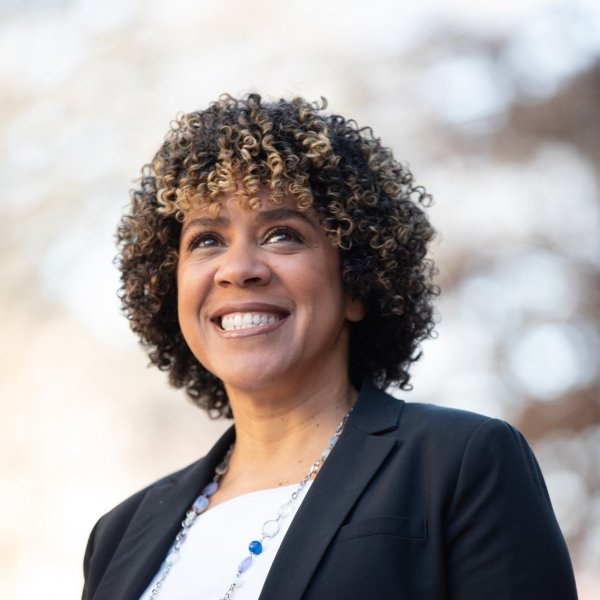
1. Women have told us that the most common reasons they are unable to engage in civic processes are logistical – time, childcare, work. What are your plans to reform our city’s civic engagement systems so they are accessible to women who face these obstacles—and, how do you plan to address the obstacles?
My policy platform is built on the belief that politics should work for all the people. The people who help keep New York City afloat, in and out of a pandemic, are the same ones struggling because our system was designed for them to struggle. As Mayor, I will work to build an environment that fosters equity both in New York City government and the city as a whole. It is time that we center the voices of people who have been systematically disenfranchised by bad policies. I believe that making decisions at the top through the lens of equity at the top will enable us to reimagine and rebuild the systems that have held us back. Further, I am a big proponent of the matching funds program. Matching funds make running for office equitable and accessible for grassroots, people-powered candidates like myself. They work to take big money out of politics, and keep politicians accountable to the interests of the people, not the interests of corporate PACs, developers, or police unions.
2. For many, civics education ends in the classroom. If elected, what plans do you have to ensure that New Yorkers are learning about civic engagement throughout their entire lives, including their rights as residents, how they can engage in different aspects of government, the legislative process, and changes in voting policies?
My campaign is centered around the idea that politics should work for all people. Throughout my campaign I have reiterated that those closest to the problem are the closest to the solution, and in my administration I will welcome all stakeholders and community members to voice their opinion and gain more decision-making power. Creating politics for all people is personal to me. As an Afro-Latina woman from Brooklyn, the communities being talked about are communities I have been a part of or have worked closely with for decades. I will bring my community with me to City Hall. I will be turning to organizations that fundamentally believe New Yorkers deserve dignity and care and are working to facilitate as many community-led projects as possible, to truly democratize how our City government works.
Furthermore, I will fight for suffrage for non-citizen residents in NYC so they can vote in municipal elections. If you live in our city, you should have a voice in our government.
3. Given that 43% of community board members are women (and fewer are women of color), what will you do to make participating in community boards easier for underrepresented communities? Do you believe that community boards should have veto power over certain decisions? If so, which ones?
I do not believe that community boards should have veto power, as they tend to not be representative of the community at large and that this would actually stifle community involvement in the process. I believe that in order to make community boards more diverse and representative of the affected communities the work needs to start at the grassroots level. There are many people who do community work such as running food pantries, organizing block parties, distributing mutual aid and more, that are largely left out of the civic engagement side. I believe that we should encourage community leaders in those roles to seek appointment to community boards. Additionally, I would be interested in working with borough presidents to see how we can better educate people on what community boards do and why their participation would be impactful. I will also explore ways to make participating on community boards easier, for example by providing child care subsidies.
4. Protest is an important channel for communities to make their voices heard, especially those who have been historically excluded from civic systems. Following the recent Department of Investigation report that found that the NYPD has acted recklessly and endangered New Yorkers who were protesting, how will you protect New Yorkers First Amendment rights?
I was at the protests and saw firsthand the immense police brutality unleashed on many protestors. Some in irreversible ways. My own children were pepper-sprayed in the crowds. We were kettled with other protestors when my son was assaulted by an officer. I uphold the demands of forcing Commissioner Shea to resign. I will insist that the police benevolent association be held financially accountable for the harm it causes. I fully support firing the cops who partook in the brutality, starting with those who were recorded on video like NYPD Officer Vincent D’Andraia, who shoved a young woman so forcefully to the ground that she had a seizure and is still suffering from her injuries. I would also have ordered reduced police presence at protests.
Broadly, I will work to end the long history of police brutality against people of color. I am committed to defunding the NYPD by $3 billion, and instead investing that money in community services that truly keep us stable, healthy, and safe.
5. Women of transgender experience are disproportionately impacted by police violence and experience incredible barriers to accessing stable housing, culturally competent health care, and other services that make it harder to engage civically. What specific plans do you have to make New York City a more equitable place for the transgender community?
I would take a holistic approach to further the rights and safety of the LGBTQ+ community. As part of my decareral agenda, I will decriminalize sex work and creating a sex workers bill of rights. I will also eliminate the NYPD Vice Squad which has harmed and trapped many trans women of color and sex workers in a cycle of arrests and incarceration. This is an urgent priority; trans women of color and sex workers have faced decades of harassment due to the criminalization of sex work, and I look forward to ending this harmful criminalization.
Reducing gender and sexuality inequity requires a real shift in budget and outreach. We need to dramatically expand resources for organizations that serve LGBTQ+ people, particularly organizations that focus on their healthcare, and we need to invest directly in City programs that ensure this care is available to every LGBTQ+ New Yorker. I will also expand funding for more social and supportive housing targeted for LGBTQ+ homeless youth.
Ray McGuire
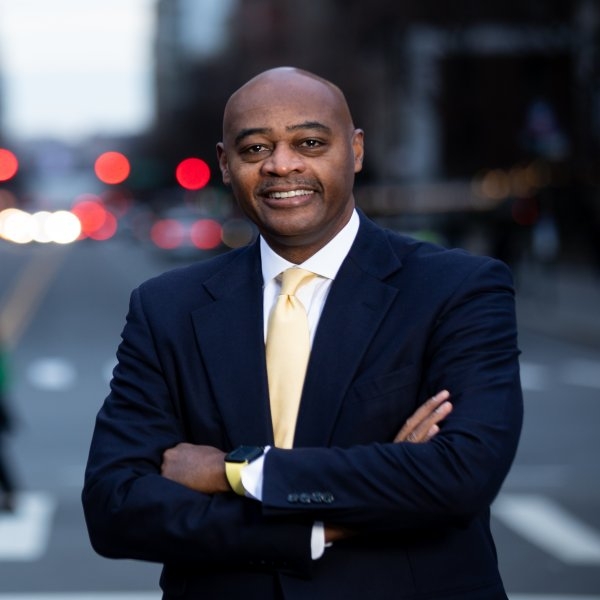
1. Women have told us that the most common reasons they are unable to engage in civic processes are logistical – time, childcare, work. What are your plans to reform our city’s civic engagement systems so they are accessible to women who face these obstacles—and, how do you plan to address the obstacles?
It is critical that we make it easier for women to be civically engaged by creating meaningful and accessible ways for them to contribute their input on how government services can be more effective. We can introduce frequent virtual and in-person town halls to accommodate for differing schedules that give constituents the opportunity to tell government officials in various agencies about issues that are important to them. It will allow individuals to stay informed, learn about key resources, and open a channel to keep the city’s administration transparent and accountable. Outreach for these meetings should be done in partnership with local nonprofits and in culturally sensitive ways, so that everyone has the ability to participate. I will also guarantee every parent access to childcare by providing operating funds and capacity building to existing programs, and urgent grants to help providers launch new programs in “childcare deserts.”
2. For many, civics education ends in the classroom. If elected, what plans do you have to ensure that New Yorkers are learning about civic engagement throughout their entire lives, including their rights as residents, how they can engage in different aspects of government, the legislative process, and changes in voting policies?
NYC is home to a variety of phenomenal organizations dedicated to educating and mobilizing women voters. My administration will partner with these groups to amplify their programs and incorporate their platforms into future legislation. Civics education can be taught through workshops on important information like voting and the legislative process, which can be held in heavily-frequented areas like religious institutions and recreational centers. They would be conducted in collaboration with local nonprofits who have ties to hard to reach communities, with an emphasis on language and disability access. This should be paired with user-friendly and comprehensive websites as well as wide-ranging educational campaigns through social media and on public transportation that spread awareness of these events and where to find out more. This information should also be mailed to individuals for added exposure and can be made available in places like grocery stores, senior centers, and schools.
3. Given that 43% of community board members are women (and fewer are women of color), what will you do to make participating in community boards easier for underrepresented communities? Do you believe that community boards should have veto power over certain decisions? If so, which ones?
Participation in community boards, local bodies that advise city government on local concerns, is a great way to become civically involved. I will ensure that distribution of community board applications are available to underrepresented communities through partnerships with local groups and community based organizations. This will also include dispensing educational materials on what community boards do, what areas they encompass, and when and where they meet. In addition, I will encourage Borough Presidents and Council Members to have a racial equity lens when choosing community board members. As mayor, I will support community boards and incorporate their input into government services, but I do not believe that they should have veto power.
4. Protest is an important channel for communities to make their voices heard, especially those who have been historically excluded from civic systems. Following the recent Department of Investigation report that found that the NYPD has acted recklessly and endangered New Yorkers who were protesting, how will you protect New Yorkers First Amendment rights?
Under my administration, I will ensure that police officers do not infringe on the first amendment rights of peaceful protesters. It is unacceptable for officers to display violence or to act recklessly towards individuals wanting to show support for their personal causes. Officers should only step in when there are real threats to public safety. If there is police misconduct, I will hold their entire chains accountable.
5. Women of transgender experience are disproportionately impacted by police violence and experience incredible barriers to accessing stable housing, culturally competent health care, and other services that make it harder to engage civically. What specific plans do you have to make New York City a more equitable place for the transgender community?
For the city to succeed, we must make it possible for all individuals to meet their highest potential, and provide services and protections for marginalized communities in all aspects of their lives. LGBTQ+ individuals experiencing homelessness, especially trans women, must receive culturally competent services and safe housing. This is the standard I will apply to all service providers receiving city contracts: to meet the highest standards of effectiveness, quality, and conduct. It is also critical to address the continued violence against trans women of color in New York City and work to make our communities safer for everyone. This is personal for me – hate has no place in our city. I will build on the successes of the NYC Unity Project to migrate it into an official office of LGTBQ+ Affairs reporting to a Deputy Mayor and tasked with working between all city agencies. This will ensure that all commitments to the LGTBQ+ community are carried out throughout every agency.
Kathryn Garcia
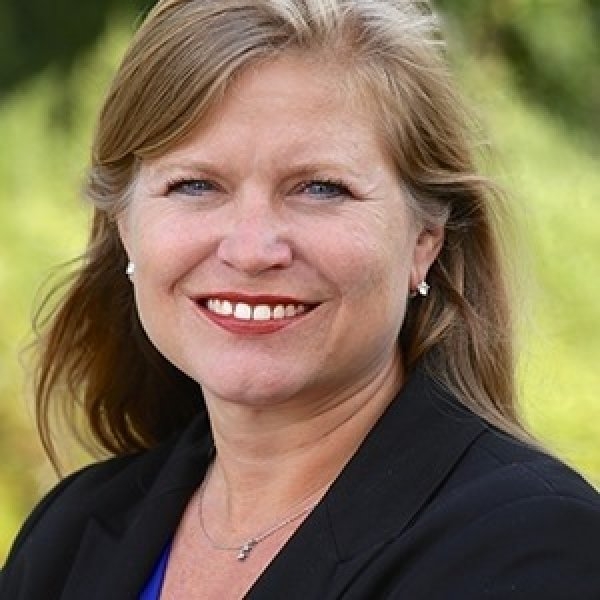
1. Women have told us that the most common reasons they are unable to engage in civic processes are logistical – time, childcare, work. What are your plans to reform our city’s civic engagement systems so they are accessible to women who face these obstacles—and, how do you plan to address the obstacles?
“We are in a childcare crisis. We have 1 in 4 women considering stepping back from their careers today, and unemployment due to COVID-19 has impacted women much more than it has men. Part of any equity plan must include an expansion on Pre-K for all to include free childcare for ages 1-3 for all families with income less than $70k. Free childcare is key.
Once this has been achieved, we will be far better situated to support women in our city’s civic engagement systems.
I was only the second female Sanitation Commissioner, and I used my position to level the playing field and make it easier for others. In an agency that is 98% male, I promoted the first female four-star chief, Director of the Operations Management Division, and the highest ranking uniformed female employee in department history. In my administration, not only will I have gender diversity at the highest ranks of city government—I’m also going to listen to them.”
2. For many, civics education ends in the classroom. If elected, what plans do you have to ensure that New Yorkers are learning about civic engagement throughout their entire lives, including their rights as residents, how they can engage in different aspects of government, the legislative process, and changes in voting policies?
Welcoming all New Yorkers to civic involvement will be a priority for me. I have one of the best voting records of any candidate running for mayor. I also know that our democracy is often inaccessible for most. Barriers include time, financial means, language access, and accessibility. It is up to government to fix these issues and make sure every New Yorker is able to participate and be civically engaged. I also believe in efficient and effective government, and that we must streamline redundancies in order to better serve New Yorkers. We can’t expect our civic infrastructure to be accessible if it is complicated and divided into many different offices. We must prioritize making access to government simpler, particularly for those that are traditionally underrepresented in the civic process such as people of color, youth, and people with disabilities. We should use the same lens for everything from City Council hearings to Participatory Budgeting to poll sites.
3. Given that 43% of community board members are women (and fewer are women of color), what will you do to make participating in community boards easier for underrepresented communities? Do you believe that community boards should have veto power over certain decisions? If so, which ones?
I hope that having virtual options for community board meetings will continue- this allows more people to participate, including women, those that have jobs that make it difficult to travel to meetings, and people with disabilities. Additionally, I support amending state law to expand community board access to include non-citizens to make our boards more diverse.
I believe the role of community boards is to consult and advise. We have to listen to communities, but we also can’t accommodate too many disparate groups with the power to block needed infrastructure like protected bike lanes or economic mobility of small businesses. However, I think community boards are vital to proposing ideas for alternative plans to what the city may propose, as they know their communities best. We all share this city, and we all need to do our part to make sure it is the best it can be.
4. Protest is an important channel for communities to make their voices heard, especially those who have been historically excluded from civic systems. Following the recent Department of Investigation report that found that the NYPD has acted recklessly and endangered New Yorkers who were protesting, how will you protect New Yorkers First Amendment rights?
I was at the BLM protests last summer and witnessed first hand the order given to front line officers to kettle—this order was given from the top. It’s completely unacceptable and those in senior leadership should have been held accountable by the Mayor, including the Commissioner.
Within the first 100 days, I would replace NYPD Commissioner Dermot Shea. I resigned from City Hall because of mismanagement at the most senior level. Lack of management translates to chaos for the public. I have seen first hand the difference that new leadership can bring to a uniform agency. When I joined Sanitation, I had a zero tolerance policy—you were late to work, you were docked a day’s pay; if you took a bribe to take private garbage, you were fired. That same level of transformation is possible in our police department. It means setting high expectations, making it clear they must be met, and ensuring officers who violate the rights of New Yorkers face consequences.
5. Women of transgender experience are disproportionately impacted by police violence and experience incredible barriers to accessing stable housing, culturally competent health care, and other services that make it harder to engage civically. What specific plans do you have to make New York City a more equitable place for the transgender community?
Discrimination and violence against the transgender community cannot be tolerated. We need a multi-pronged approach to address it.
I believe that hate is taught, and that we must make more efforts to expand trans visibility and affirmation.
Additionally, I would streamline the work that exists across numerous agencies and offices that deal with hate crimes so that they can work more effectively and strategically. Under the current administration, combating hate crimes fall under several groups: the NYPD’s Hate Crimes Task Force, the City Commission on Human Rights, the Office for the Prevention of Hate Crimes, as well as programs within the DOE.
Lastly, we need to hold the NYPD accountable for combatting and reducing hate crimes. We need to take actionable steps towards changing making the police a service for communities. That starts with measuring what we want to see—reduction in crime, and positive community engagement—and promoting officers that exemplify those values.
Maya D. Wiley
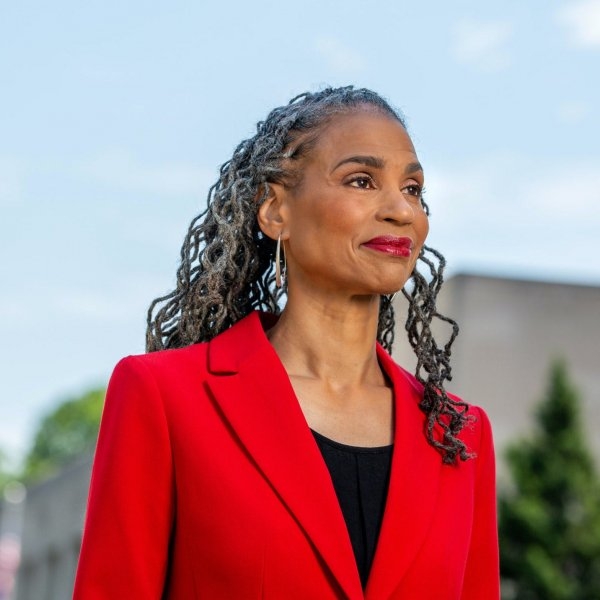
1. Women have told us that the most common reasons they are unable to engage in civic processes are logistical – time, childcare, work. What are your plans to reform our city’s civic engagement systems so they are accessible to women who face these obstacles—and, how do you plan to address the obstacles?
The NYC Board of Elections is an embarrassment to our City and undermines our democratic processes. As Mayor, I would advocate for an overhaul of the BOE to turn it into a competent, accountable agency. Additionally, I would work with Albany to continue to expand voter rights and access.
To address the obstacles to voting facing many women, I have proposed a Universal Community Care platform, which will create Community Care Centers in all five boroughs, which will house conventional programs from childcare, jobs and training programs, activities for seniors, school children and teens, counseling, social services and cultural activities. These centers will ease the caregiving burdens on working mothers, as will the establishment of a Care Income, which will send $5,000 annually to 100,000 high need families across the city to help them afford the resources, medicine and other supplies they need to properly care for their children, elderly loved ones and families.
2. For many, civics education ends in the classroom. If elected, what plans do you have to ensure that New Yorkers are learning about civic engagement throughout their entire lives, including their rights as residents, how they can engage in different aspects of government, the legislative process, and changes in voting policies?
I would work with City agencies to educate New Yorkers on how to engage civically, including how they can register and vote to ensure their voices are heard. To this end, I served as the chair of the campaign to pass Ranked Choice Voting because after doing the research, it was clear that RCV in other jurisdictions have given Black and Brown New Yorkers more power at the polls.
In addition, I will ensure that all NYC schools adopt a culturally responsive approach to all aspects of curriculum, pedagogy and assessment, including civics education. I will fully invest in the NYC Department of Education’s definition of Culturally Responsive-Sustaining Education with an expansion of the Office of Equity and Access, and require that all new curriculum purchases are culturally responsive and aligned with the NYC DOE’s definition of culturally responsive-sustaining education. I will center community engagement in all school practices and decisions, and provide training for all staff on disability justice and gender justice, to ensure stronger support for youth with disabilities and LGBTQIA+ youth. Finally, I will mandate an advisory program in every school, with a culturally responsive, locally determined curriculum based on population, languages spoken, and need. These policies will support NYC students to engage with their communities, and with local politics.
3. Given that 43% of community board members are women (and fewer are women of color), what will you do to make participating in community boards easier for underrepresented communities? Do you believe that community boards should have veto power over certain decisions? If so, which ones?
From the jump, I have always believed that impacted communities were always the experts of their own solution and should have a say in policy making decisions, which is why I made people’s assemblies so important throughout my campaign and will continue them into my mayoralty. I do not think community boards should have the final say. While borough presidents and city council members appoint community board members, I would work with them to expand access and increase diversity on these boards.
4. Protest is an important channel for communities to make their voices heard, especially those who have been historically excluded from civic systems. Following the recent Department of Investigation report that found that the NYPD has acted recklessly and endangered New Yorkers who were protesting, how will you protect New Yorkers First Amendment rights?
I was in the streets this summer marching for justice after the murder of George Floyd and breaking the curfew that I believed was unnecessary and ill-advised. I also watched in horror as the NYPD executed a six-hour siege around the home of a Black Lives Matter activist for using a bullhorn at a protest. We saw unconstitutional use of force in videos. We saw some police officers who did not violate their training and the law, but we saw that leadership defended what was unconstitutional and just plain wrong. First and foremost, I will replace the Police Commissioner with one who is accountable to me. Then, I will set clear rules that the department must follow when it comes to protests and all policing for that matter. If the leadership of the department or members of the department do not follow those rules, I will take swift action to hold them accountable.
5. Women of transgender experience are disproportionately impacted by police violence and experience incredible barriers to accessing stable housing, culturally competent health care, and other services that make it harder to engage civically. What specific plans do you have to make New York City a more equitable place for the transgender community?
No one should be denied access to health care because of their chosen gender expression. I will provide funding for staff at city hospitals that will act as case managers and advocates for transgender, non-binary and gender nonconforming patients. My administration will expand funding for culturally competent mental health services for the LGBTQ+ community and work to increase access to HIV and STI prevention medications.
I will expand funding for The New York City Commission on Human Rights as well as employment programs tailored to transgender, non-binary and bender non-conforming New Yorkers. I also recognize that trans women face unique challenges with regard to stable housing, especially trans women of color. My administration will invest in supported SROs, and work to construct more culturally competent affordable housing targeted to the LGBTQ+ community to avoid placements in traditional shelters that may be unsafe.
In addition, recognizing that trans women are disproportionately impacted by police violence, I will cut at least $1 billion from the NYPD budget to fund investments in alternatives to policing, including the elimination of the vice squad, creating a community-based participatory justice fund to address gun violence, and annual payments for low-income caregivers.
Note: Democratic and Republican mayoral candidates were invited to participate in the candidate questionnaire, and each who provided answers are included above.

